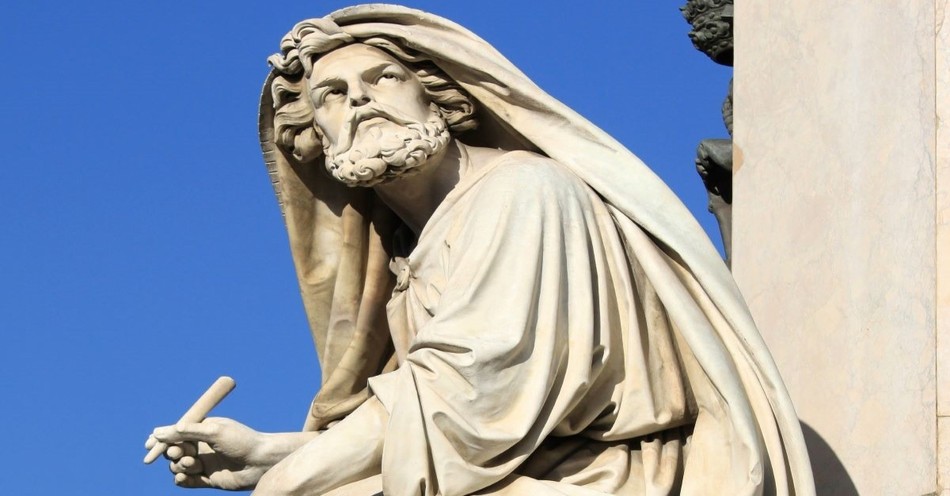The Old Testament of the Bible introduces us to several prophets, each with a unique narrative and messages that continue to reverberate through history. Among these prophets, Isaiah stands out as a significant figure, held in high esteem in multiple religious traditions, including Judaism, Christianity, and Islam. Yet, despite his prominence, one question lingers: how did Isaiah die? To unravel this mystery, we delve into various sources, both canonical and non-canonical.
Isaiah: An Introduction
Isaiah, whose name translates to “the Lord is salvation,” was a prominent figure in the 8th century BCE. He served as a major prophet during the reigns of four kings of Judah: Uzziah, Jotham, Ahaz, and Hezekiah. His prophetic ministry spanned approximately 60 years, during which he shared significant prophecies, many of which pointed towards the coming of a Messiah.
Isaiah’s life and teachings are chronicled in the Book of Isaiah, a central part of the Hebrew Bible. This book, divided into three parts, highlights Isaiah’s prophecies and the socio-political turmoil of his times. Despite the rich information about his life and teachings, the Bible remains silent about the circumstances of Isaiah’s death, piquing curiosity and leading to various theories.
Theories Surrounding Isaiah’s Death
Several theories have surfaced over the centuries about Isaiah’s death. These theories, often rooted in ancient texts outside the canonical Bible, provide intriguing insights into Isaiah’s end.
Martyrdom of Isaiah and Ascension of Isaiah
One of the earliest accounts of Isaiah’s death comes from a non-canonical Christian text dated around 100 AD, known as the “Martyrdom of Isaiah.” It presents a chilling narrative where Isaiah is condemned to death by King Manasseh, the son of King Hezekiah. The prophet was supposedly concealed inside a tree, which was then sawed in half, leading to Isaiah’s martyrdom.
A similar narrative is found in another non-canonical text, the “Ascension of Isaiah.” This text adds greater detail, describing how Isaiah prophesied the downfall of King Hezekiah’s son, Manasseh. Upon ascending to the throne, Manasseh, driven by evil forces, orders the execution of Isaiah.
Talmudic Accounts
Further accounts are found in the Jewish Talmud, a compilation of oral traditions from rabbis dating back to around 200 AD. The Talmud provides a similar narrative, where Isaiah hides in a cedar tree, only to be discovered and sawed in half by King Manasseh.
Hebrews 11:37
While the canonical Bible does not explicitly mention Isaiah’s death, a verse from the New Testament’s Book of Hebrews hints at it. Hebrews 11:37 states, “They were stoned, they were sawed in two, they were killed with the sword.” This passage, part of the ‘Faith Hall of Fame,’ has been interpreted by many as an indirect reference to Isaiah’s death.
Despite the multitude of theories, the exact circumstances of Isaiah’s death remain uncertain. The Bible does not provide explicit evidence of Isaiah’s longevity into King Manasseh’s reign or the precise year or manner of his death.
The Impact of Isaiah’s Death
While the specifics of Isaiah’s death are shrouded in mystery, the impact of his death is undeniable. Isaiah’s martyrdom serves as a potent reminder of the sacrifices made by those dedicated to serving God and spreading His message. It is a testament to the unwavering faith and courage of those who stand for their beliefs, even when faced with persecution and adversity.
Isaiah’s life, teachings, and ultimate sacrifice continue to inspire believers worldwide. His death, while tragic, underscored his commitment to God’s service and the propagation of His message. This resilience, steadfast faith, and commitment to divine service continue to resonate with believers today, making Isaiah a revered figure in multiple religious traditions.
The Life and Times of Isaiah
Before delving further into the question of how did Isaiah die, it’s important to understand the prophet’s life and times. The Book of Isaiah provides a vivid account of his life, his visions, and his prophecies.
Isaiah’s Call to Prophethood
One of the most remarkable moments in Isaiah’s life was his divine calling. In the Book of Isaiah, the prophet recounts a vision of God in His temple, surrounded by seraphim, angelic beings, who praised Him with the words, “Holy, holy, holy is the Lord Almighty; the whole earth is full of his glory” (Isaiah 6:3).
Struck by his own unworthiness in the face of God’s holiness, Isaiah cried out, “Woe is me! For I am lost; for I am a man of unclean lips, and I dwell in the midst of a people of unclean lips; for my eyes have seen the King, the Lord of hosts!” (Isaiah 6:5). In response, a seraphim touched his lips with a live coal from the altar, symbolically purifying him and forgiving his sins.
Upon hearing God’s voice asking, “Whom shall I send, and who will go for us?” Isaiah courageously responded, “Here am I! Send me” (Isaiah 6:8). This marked the beginning of his prophetic ministry, setting him on a path of delivering God’s messages to the people of Israel.
Isaiah’s Prophetic Ministry
Throughout his ministry, Isaiah delivered prophecies filled with warnings and hope. His messages, often directed towards the Israelites during a time of great sin and rebellion against God, urged them to repent and turn back to God. While he warned of impending judgment, Isaiah also spoke of a future Messiah and a new Jerusalem, where all would be welcome.
Despite the challenges he faced, Isaiah remained committed to his mission. His prophecies, recorded in the Book of Isaiah, continue to serve as a source of guidance and inspiration for believers worldwide.
The Legacy of Isaiah
Isaiah’s legacy extends far beyond his life and times. His teachings and prophecies have had a profound impact on Jewish and Christian theology and continue to inspire countless believers. The Book of Isaiah, with its powerful prophecies and remarkable literary style, remains a central part of the Hebrew Bible and the Christian Old Testament.
Prophecies of the Messiah
Perhaps the most significant aspect of Isaiah’s legacy lies in his prophecies about the Messiah. His predictions are so specific and accurate that they have been interpreted as compelling evidence that Jesus was the promised Redeemer. Isaiah’s prophetic portrait of the Messiah as a suffering servant who would bring salvation to humanity is echoed in the life, death, and resurrection of Jesus Christ.
Isaiah in the New Testament
Isaiah’s influence extends into the New Testament as well. Jesus Christ, in the Gospel of Luke, refers to Isaiah’s prophecy, declaring its fulfillment in His ministry. The apostle Paul, in his letters, also quotes Isaiah numerous times, further underscoring the profound impact of Isaiah’s prophecies on early Christian thought and teachings.
The Significance of Isaiah’s Death
While the question of how did Isaiah die may never be definitively answered, the significance of his death lies in its testament to his faith and commitment to God’s message. Despite the brutal manner of his death, Isaiah’s legacy serves as a beacon of faith, courage, and unwavering devotion to God’s service. The prophet’s life and teachings continue to inspire believers, and his memory endures as an emblem of hope and salvation.
The Impact on Believers
Isaiah’s life, ministry, and death have had a profound impact on believers of all faiths. His teachings continue to inspire countless people, challenging them to live lives of faith, repentance, and commitment to God. As believers delve into the question of how did Isaiah die, they are reminded of the sacrifices made by those who have dedicated their lives to serving God and spreading His message.
The Legacy Continues
Isaiah’s legacy continues to resonate with believers today. His prophecies, especially those pointing towards the coming of the Messiah, continue to provide hope and comfort. His teachings, recorded in the Book of Isaiah, remain a vital part of religious scriptures, guiding believers in their spiritual journey.
Conclusion
Isaiah’s death, while shrouded in mystery, serves as a powerful testament to his faith and commitment to God’s mission. The question of how did Isaiah die may not have a definitive answer, but the enduring legacy of the prophet’s life, teachings, and sacrifice continues to inspire and guide believers across the ages. His life serves as a powerful reminder of the courage and faith required to stand firm in one’s beliefs, even in the face of adversity and persecution. Isaiah’s story continues to be a beacon of faith, hope, and salvation for believers around the world.






